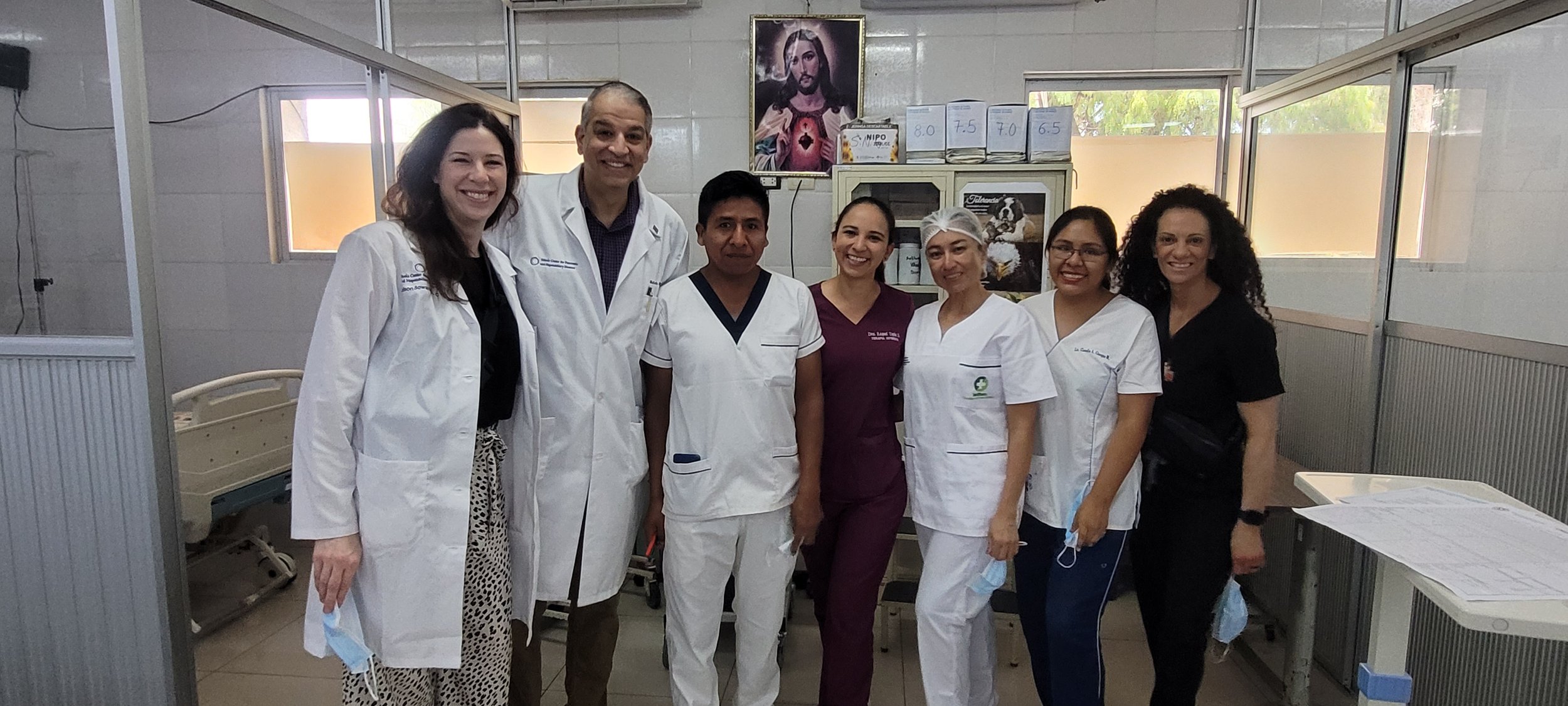Florentino's Journey
Written by Jodi Grahl
It was our first morning at the Oncological Institute in Santa Cruz, and we were meeting with our partners to review and discuss the operative plan for each of their pre-selected patients. Halfway through the case list, another doctor entered and asked us to meet a new patient, Señor Florentino, who had been admitted a few days earlier through the emergency department. An endoscopic biopsy had confirmed gastric cancer, and a CT scan suggested a tumor had perforated and was leaking throughout his abdomen.
Florentino’s health was declining minute by minute. He was not expected to survive the night. Bolivian Dr. Susan Aviles and US Dr. Malcolm Bilimoria consulted and they agreed they would operate together as soon as Florentino could be prepped. They explained the situation to his son, Juan Carlos, who responded with a mix of gratitude, relief, and panic over the urgent cost of the medications and supplies he’d need to buy even though the surgery itself was free. We assured him that we’d go ahead with the surgery while Carmen Salses, social worker from Puente de Solidaridad, helped resolve the supply needs through our “extraordinary support” fund established specifically to cover such expenses.
In the OR during Florentino’s Surgery
By two o’clock, we were in the operating room. Dr. Bilimoria and Dr. Aviles soon discovered that the immediate threat to Florentino’s life was not the cancer but an inflamed ulcer that had perforated a hole in his stomach, leading to massive infection throughout his abdomen. They meticulously cleaned the cavity and constructed a patch over the gap in the stomach wall. They then inserted a feeding tube and a pair of drains before closing, and left Florentino in the care of the ICU staff.
We woke on Tuesday morning anxious to confirm that Florentino had made it through the night. Sepsis had been setting in before he went into surgery, and there was no guarantee he would have the strength to fight off the massive infection even with the best antibiotics. Everyone breathed a sigh of relief when we found him propped up in his hospital bed. His skin was pinker, and his eyes were brighter. He looks even better today—three days after his surgery.
Encouraged by his progress, Dr. Bilimoria and Dr. Aviles met again with his son, Juan Carlos, to discuss the next steps in his father’s care. Once his stomach heals and he rebuilds his strength with high protein nutrition through his feeding tube, the Institute can proceed with treatment for his gastric cancer. Bolivia’s universal health policy recently added coverage for basic chemotherapy medications for cases like Florentino’s. The oncologists may begin with that treatment, or opt to proceed directly to surgery to resect the cancerous tissue.
Missioners with Florentino’s son after surgery.
Juan Carlos explained that his father lives in Beni, another Bolivian department to the north of Santa Cruz de la Sierra. He took an 18-hour bus ride to Santa Cruz when he got too sick to work, but he’s restless in the city. Florentino is eager to return home and continue tending to his chickens and yucca plants, but unfortunately his home state does not have the medical capacity to provide this type of cancer care. Juan Carlos also mentioned that his wife and young daughter are sick with dengue fever. Between caring for them at home, accompanying his father in the hospital, and completing his shifts as a street sanitation worker, he has been unable to think beyond each day. But he is overjoyed that his father is improving and there is hope to treat his cancer.
Far too many people with treatable conditions, like Florentino, are forced to go without care because it is not accessible in their region, not affordable for their family, or not able to be provided in a timely fashion. These are the types of barriers we are working to eliminate. The training and capacity building that we do on these mission trips is an important part of our efforts to improve access to care for patients like Florentino.
Members of our US mission team smile with nurses from the ICU
As I write this, the team in the OR is halfway through our fourth surgery of the week. The cases have included gallbladder, liver, duodenal, and pancreatic cancers, each seemingly more complicated than the last. Both patients from Tuesday are progressing well, but remain alongside Florentino in the ICU under the close eye of the Institute’s critical care nurses. They all have long recovery processes ahead of them, but through Carmen, the Puente de Solidaridad social worker, we will stay in touch with each of them and strive to accompany them through the coming weeks and months.



